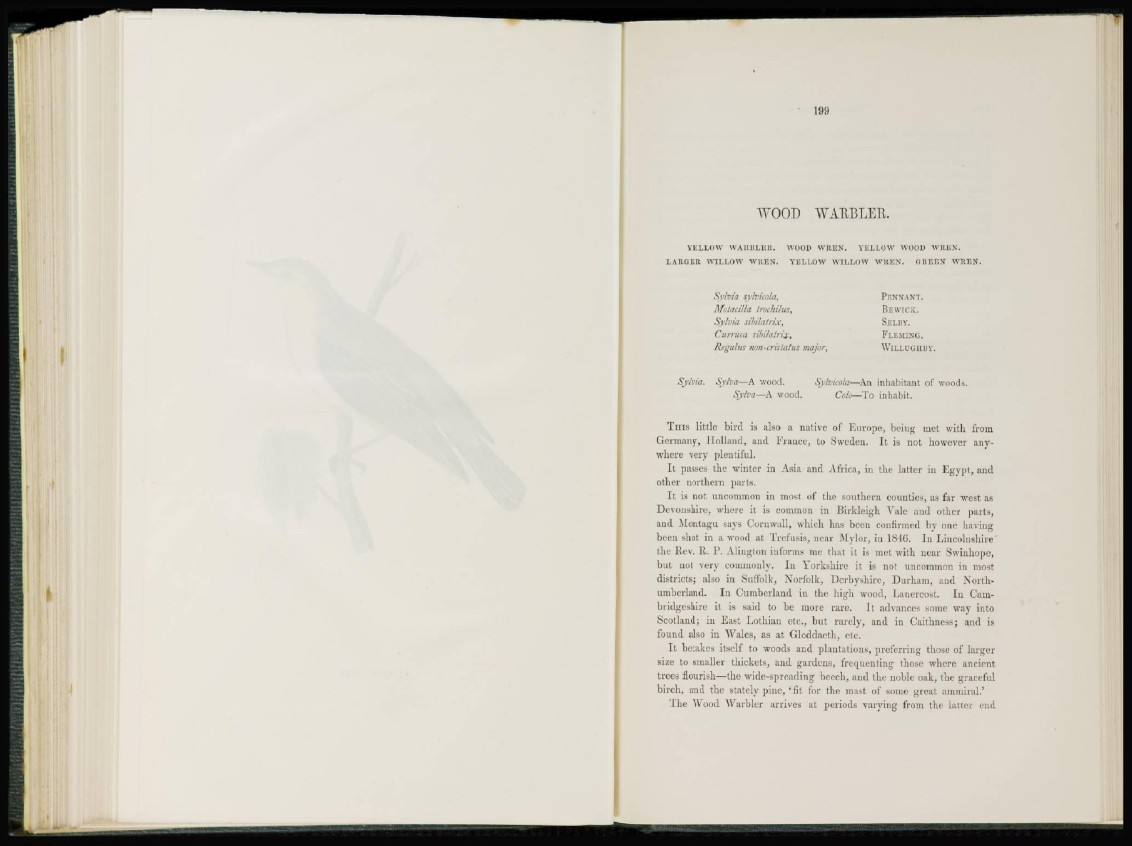
WOOD WARBLER.
Y E L L O W W A R B L E R . WOOD W R E N . YELLOW WOOD W R E N.
L A R G E R W I L L O W W R E N . YELLOW W I L L O W W R E N . GREEN WREN.
Sylvia sylvicola, PENNANT.
Motacilla troch11'us, BEWICK.
Sylvia sibila trix, SELBY.
Curruca sibila tris, FLEMING.
Regulus non-cris talus major, WILLCGHB
Sylvia. Sylva—A wood. Sylvicola—An inhabitant of woods.
Sylva—A wood. Colo—To inhabit.
T i n s little bird is also a native of Europe, being- met with from
Germany, Holland, and France, to Sweden. It is not however anywhere
very plentiful.
I t passes the winter in Asia and Africa, in the latter in Egypt, and
other northern parts.
I t is not uncommon in most of the southern counties, as far west as
Devonshire, where it is common in Birkleigh Vale and other parts,
and Montagu says Cornwall, winch has been confirmed by one having
been shot in a wood at Trefusis, near Mylor, in 1840. In Lincolnshire
the Rev. R. P. Alington informs me that it is met with near Swinhope,
but not verv commonly. In Yorkshire it is not uncommon in most
districts; also in Suffolk, Norfolk, Derbyshire, Durham, and Northumberland.
In Cumberland in the high wood, Lanercost. In Cambridgeshire
it is said to be more rare. It advances some way into
Scotland; in East Lothian etc., but rarely, and in Caithness; and is
found also in Wales, as at Gloddaeth, etc.
I t betakes itself to woods and plantations, preferring those of larger
size to smaller thickets, and gardens, frequenting those where ancient
trees flourish—-the wide-spreading beech, and the noble oak, the graceful
birch, and the stately pine, ' fit for the mast of some great ammiral.'
The Wood Warbler arrives at periods varying from the latter end